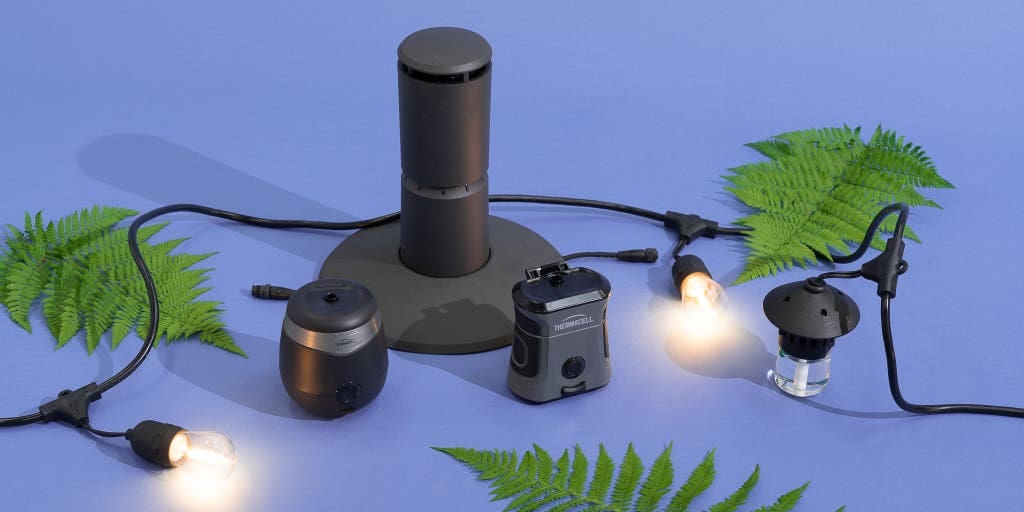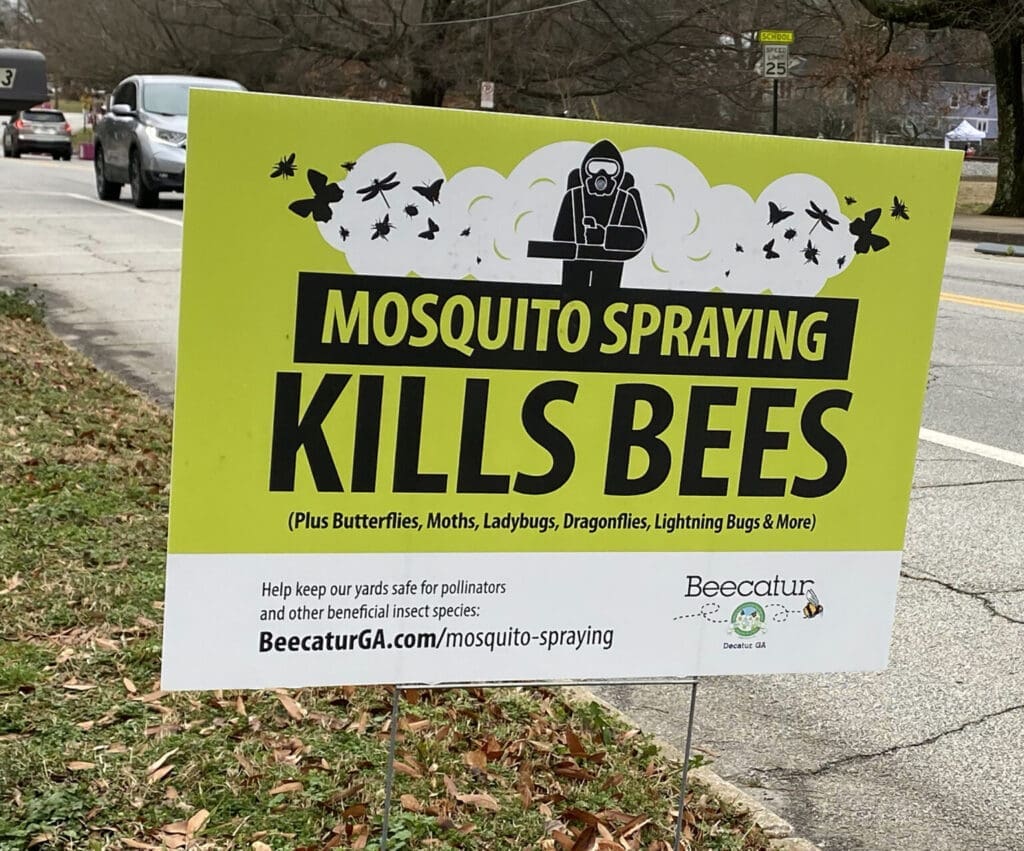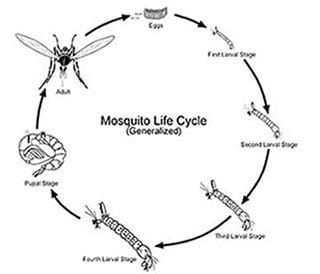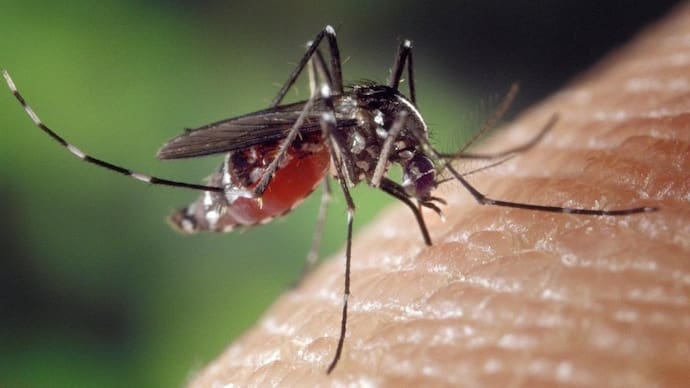Are you tired of those pesky mosquitoes buzzing around your home, ruining your outdoor fun, and leaving behind itchy bites? Look no further! In this article, we will explore the modern approach to mosquito control in homes. From innovative methods to eco-friendly solutions, we’ve got you covered. Say goodbye to those irritating insects and regain control of your space. So sit back, relax, and let us guide you through the world of effective mosquito control.
Natural Mosquito Repellents
Essential Oils
When it comes to warding off mosquitoes naturally, essential oils can be your best friend. These oils not only have a pleasant aroma but also possess insect-repelling properties. Some popular essential oils that have proven to be effective against mosquitoes include citronella, lavender, eucalyptus, lemongrass, and peppermint. You can mix a few drops of these oils with a carrier oil like coconut or jojoba oil and apply it to your skin to keep those pesky mosquitoes at bay. Alternatively, you can use essential oil diffusers or burn essential oil-infused candles to create a mosquito-free environment indoors.
Herbs and Plants
Another natural way to deter mosquitoes is by growing specific herbs and plants in your garden or placing potted plants strategically around your outdoor living spaces. Plants like citronella, basil, lemon balm, marigold, lavender, and catnip have natural mosquito-repelling properties. Not only will these plants add beauty to your garden, but they will also provide a natural barrier against mosquitoes. You can even crush the leaves of these plants and rub them directly onto your skin for added protection.
Mosquito Repellent Clothing
Wearing the right clothing can act as a physical barrier against mosquitoes. Opt for long sleeves, long pants, and socks whenever possible, especially during peak mosquito activity times such as dawn and dusk. To enhance your personal protective measures, consider investing in mosquito repellent clothing. These garments are specially treated with insecticides that repel mosquitoes on contact. They are a great option for outdoor enthusiasts or for those who live in mosquito-prone areas. Remember to follow the manufacturer’s instructions when laundering the clothing to maintain its repellency.
Mechanical Mosquito Control
Mosquito Nets
Mosquito nets have been used for centuries as a simple yet effective method of keeping mosquitoes away. Installing mosquito nets over windows, doors, or even beds can create a barrier that prevents mosquitoes from entering your living spaces. There are different types of mosquito nets available, such as bed nets, window nets, and door nets. Bed nets are particularly useful for protecting you while you sleep, ensuring a peaceful and mosquito-free night.
Window Screens
Window screens are another mechanical mosquito control method that is commonly used in homes. These screens are made of fine mesh that prevents mosquitoes from entering when windows are open. Installing window screens is a relatively simple and cost-effective way to keep mosquitoes out of your living spaces while allowing for proper ventilation. Regularly inspect and repair any damages or tears in the screen to maintain its effectiveness.
Door Screens
Similar to window screens, door screens provide an additional line of defense against mosquitoes. They can be installed on both front and back doors to create a barrier that allows fresh air to flow into your home while keeping mosquitoes outside. Door screens come in various designs, including sliding screens and magnetic screens. Choose the option that suits your needs and lifestyle best and remember to keep the screen closed at all times to prevent mosquitoes from sneaking in.

Chemical Mosquito Control
Insecticides
Insecticides are a chemical solution for controlling mosquitoes and can be used both indoors and outdoors. There are various types of insecticides available, including aerosol sprays, mosquito coils, and liquid repellents. These products contain chemicals that either repel mosquitoes or kill them upon contact. When using insecticides, it is essential to follow the instructions carefully, ensuring safe and effective application. Keep in mind that some insecticides may pose health risks, so always read the labels and use them with caution.
Larvicides
If you have standing water sources near your home, such as birdbaths or ponds, you may consider using larvicides. Larvicides are chemicals specifically designed to target mosquito larvae in their breeding grounds. By treating these water sources with larvicides, you can prevent the development of mosquitoes before they become a nuisance. It is crucial to choose environmentally-friendly larvicides and follow the instructions provided to ensure proper and safe usage.
Fogging and Misting Systems
For large outdoor spaces, fogging and misting systems can be an effective chemical mosquito control option. These systems release a fine mist of insecticides that disperse in the air, creating a barrier against mosquitoes. Fogging and misting systems are commonly used for outdoor events, restaurants, and recreational areas. However, it is important to carefully consider the impact of these chemicals on the environment and human health, and to use them responsibly and in accordance with local regulations.
Outdoor Space Management
Eliminating Standing Water
One of the most effective ways to prevent mosquitoes from breeding around your property is by eliminating any standing water sources. Mosquitoes require standing water for their eggs to hatch and develop into adults. Regularly inspect your outdoor areas for any objects or containers that collect water, such as flower pots, buckets, or pet bowls. Empty and clean these sources or cover them tightly to prevent water accumulation. Maintaining proper drainage in your yard and repairing any leaky pipes or faucets can also help eliminate potential mosquito breeding grounds.
Trimming Vegetation
Overgrown vegetation provides ideal resting and breeding spots for mosquitoes. Keeping your lawn, shrubs, and trees well-trimmed can significantly reduce mosquito activity around your property. Mosquitoes are attracted to cool and shaded areas, so trimming branches and removing dense vegetation will increase air circulation and sunlight, making your outdoor spaces less appealing to these insects. Regularly cut the grass, trim bushes, and remove any unnecessary vegetation to discourage mosquitoes from settling in.
Outdoor Lighting
Believe it or not, the type of outdoor lighting you use can influence the presence of mosquitoes. Mosquitoes are attracted to certain types of light, particularly UV light and warm-colored lights. To minimize mosquito activity around your outdoor spaces, consider using yellow or LED lights, as they are less attractive to mosquitoes. Additionally, installing motion sensor lights can help deter mosquitoes as they are sensitive to movement. By choosing your outdoor lighting strategically, you can create an environment that is less inviting to these pesky insects.
Mosquito Traps
CO2 Traps
CO2 traps are designed to mimic the human breath, which is an attractive factor for mosquitoes. These traps emit a continuous stream of carbon dioxide that lures mosquitoes into the device. Once inside, the mosquitoes are unable to escape and eventually perish. CO2 traps are most effective when placed in areas with high mosquito activity, such as near stagnant water sources or outdoor seating areas. It is important to note that while CO2 traps can capture a significant number of mosquitoes, they may not eliminate the entire population in your area.
Electric Traps
Electric traps are another popular type of mosquito trap that uses a combination of light and electric currents to attract and kill mosquitoes. These traps work by luring mosquitoes towards a light source and then electrocuting them. Electric traps are effective in reducing mosquito populations but should be used alongside other control methods for optimal results. Place electric traps in areas where mosquitoes are likely to be found, such as near bushes or seating areas, but make sure they are out of reach from children and pets.
Suction Traps
Suction traps, also known as vacuum traps, use powerful fans to attract and trap mosquitoes. These traps produce a gentle airflow that draws mosquitoes into the device, where they are captured in a container or bag. Suction traps can be placed indoors or outdoors and are particularly effective in areas with high mosquito populations. They offer a chemical-free and environmentally-friendly alternative to traditional mosquito control methods. Regularly empty and clean the trap to maintain its efficiency and prevent any unpleasant odors.
Smart Home Solutions
Mosquito Monitoring Apps
With the rise of smart technology, there are now mosquito monitoring apps available that can help you track mosquito activity in your area. These apps use real-time data and weather information to provide insights into mosquito populations, activity levels, and breeding patterns. By using these apps, you can stay informed about the local mosquito situation and take appropriate preventive measures. Some apps even offer notifications and alerts when mosquito activity is high, allowing you to plan outdoor activities accordingly.
Automated Sprinkler Systems
Automated sprinkler systems can serve a dual purpose by not only keeping your lawn and plants hydrated but also deterring mosquitoes. Mosquitoes are generally attracted to damp and moist areas, so having a well-maintained and regularly watered lawn can work in your favor. By installing an automated sprinkler system, you can ensure that your outdoor spaces receive the necessary amount of water without creating stagnant pools or puddles that mosquitoes thrive in. Make sure to program the system to water in the early morning or late afternoon to prevent excessive moisture buildup.
Smart Repellent Devices
Smart repellent devices offer a high-tech way of keeping mosquitoes at bay. These devices use ultrasonic frequencies or heat to repel mosquitoes without the need for any chemicals. Some devices can be connected to your smartphone, allowing you to control and monitor their effectiveness remotely. Smart repellent devices are portable and can be used both indoors and outdoors, making them a versatile option for mosquito control. Keep in mind that individual effectiveness may vary, so it’s important to choose a device that suits your specific needs and preferences.

DIY Mosquito Control
Homemade Traps
If you enjoy a good do-it-yourself project, you can try making your own mosquito traps using common household items. One popular DIY mosquito trap involves using a plastic bottle, sugar water, and yeast. Mosquitoes are attracted to the sugar water and are trapped inside the bottle due to the carbon dioxide produced by the yeast. There are also various other DIY trap designs and tutorials available online that cater to different trapping mechanisms. While homemade traps may not be as effective as professional products, they can still help reduce mosquito populations in specific areas.
Citronella Candles
Citronella candles have long been used as a natural and pleasant-smelling mosquito deterrent. These candles contain the essential oil of citronella, which is known for its mosquito-repelling properties. When burned, the scent of citronella masks the attractants that draw mosquitoes, making them less likely to approach you or your outdoor spaces. Place citronella candles strategically around your patio, deck, or outdoor seating areas to create a mosquito-free zone. Remember to always follow safety precautions when using candles and never leave them unattended.
Mosquito-Repelling Plants
As mentioned earlier, certain plants have natural properties that repel mosquitoes. You can harness the power of these plants by creating a mosquito-repelling garden or placing potted plants in key areas around your home. In addition to citronella and lavender, some other mosquito-repelling plants include rosemary, basil, mint, and lemon thyme. Not only will these plants enhance the aesthetics of your outdoor spaces, but they will also act as a natural defense against mosquitoes. Experiment with different plant combinations and arrangements to find what works best for your specific needs.
Integrated Pest Management
Inspection and Identification
Integrated Pest Management (IPM) is an approach that focuses on the prevention and control of pests using environmentally-friendly and sustainable methods. The first step in IPM is conducting a thorough inspection of your property to identify any areas that may be conducive to mosquito breeding or harboring. Look for standing water sources, overgrown vegetation, and areas with poor drainage. By understanding the potential mosquito hotspots on your property, you can develop a targeted and effective control plan.
Sanitation and Exclusion
Once you have identified problem areas, the next step in IPM is implementing sanitation and exclusion measures. This involves eliminating or modifying the conditions that attract and support mosquitoes. Remove any standing water sources, trim vegetation, and ensure proper drainage. Repair any gaps or cracks in windows, doors, or screens to prevent mosquito entry. Exclusion also includes using physical barriers such as nets, screens, or clothing to protect yourself and your living spaces from mosquitoes. By practicing good sanitation and implementing exclusion measures, you can significantly reduce mosquito populations.
Monitoring and Treatment
The final step in IPM is monitoring the effectiveness of your control measures and implementing additional treatments if necessary. Regularly check your property for any signs of mosquito activity, such as bites or larvae. If mosquito populations persist despite your efforts, consider using targeted treatments such as larvicides or repellents. IPM focuses on minimizing the use of chemicals and prioritizing environmentally-friendly methods, so it is essential to choose treatments that align with these principles. Monitor the effectiveness of your control measures over time and adjust your strategy as needed.

Professional Mosquito Control Services
Benefits of Hiring Professionals
While DIY methods can be effective to some extent, there are certain situations where professional mosquito control services may be the best option. Professional services offer several benefits, including expertise in mosquito control techniques, access to professional-grade products, and the ability to develop customized plans based on your specific needs. Professionals understand the biology and behavior of mosquitoes, allowing them to implement targeted control measures. Additionally, they can offer advice on long-term preventive strategies to minimize the risk of future infestations.
Treatment Options
Professional mosquito control services employ a range of treatment options to effectively manage mosquito populations. These treatments may include the use of targeted insecticides, larvicides, and repellents. The choice of treatment will depend on the severity of the mosquito problem, the specific species present, and the environmental impact. Professionals have the knowledge and experience to determine the most suitable treatment option and apply it safely and effectively. Regular treatments may be necessary to maintain optimal control, especially in areas with high mosquito populations.
Long-Term Mosquito Control Plans
One significant advantage of hiring professional mosquito control services is the ability to develop long-term control plans. Professionals can assess the unique characteristics of your property and develop a comprehensive plan that addresses current infestations and prevents future ones. This may involve a combination of treatments, monitoring, and ongoing maintenance. Long-term control plans take into account seasonal variations in mosquito activity and ensure that your property remains protected year-round. By investing in professional services, you can enjoy peace of mind knowing that your home and outdoor spaces are mosquito-free.
Preventing Mosquito Bites
Personal Protection Measures
While mosquito control methods are essential, it is equally important to protect yourself from mosquito bites. One of the simplest and most effective ways to do this is by applying mosquito repellent to exposed skin. Choose a repellent that contains an EPA-approved active ingredient, such as DEET, picaridin, or oil of lemon eucalyptus. Wear light-colored, loose-fitting clothing that covers as much of your body as possible, especially during peak mosquito activity times. Consider using a mosquito net or tent when camping or sleeping in outdoor areas. Additionally, avoid areas with known mosquito infestations, if possible.
Clothing Choices
The clothing you choose can play a significant role in preventing mosquito bites. Opt for long-sleeved shirts, long pants, and socks in light colors, as mosquitoes are attracted to dark colors and can easily bite through thin fabrics. Tuck your pants into your socks and wear closed-toe shoes to minimize exposed skin. If you are spending a significant amount of time outdoors, consider investing in mosquito repellent clothing, as mentioned earlier. Remember to also protect your head and neck by wearing a hat or using a head net.
Time Management
Mosquitoes are most active during specific times of the day, with their feeding preferences varying depending on the species. Dawn and dusk are particularly peak times for mosquito activity. To minimize your exposure to mosquitoes, plan your outdoor activities accordingly. If possible, schedule your outdoor outings during the daytime when mosquito activity is typically low. Avoid spending time outdoors during dawn and dusk, or use additional personal protection measures during these times. By being mindful of mosquito activity patterns, you can significantly reduce the risk of mosquito bites.
In conclusion, effectively managing and controlling mosquitoes in and around your home requires a comprehensive approach. From utilizing natural mosquito repellents and mechanical control methods to implementing chemical treatments and smart home solutions, there are various options available to fit your needs and preferences. Whether you choose to tackle mosquito control as a DIY project or seek professional services, the key is to be proactive and consistent in your efforts. By implementing preventive measures, regularly monitoring mosquito populations, and taking appropriate action, you can create a mosquito-free environment that allows you to enjoy your outdoor spaces to the fullest. Remember, with the right mosquito control strategies in place, you can reclaim your home and protect yourself and your loved ones from the nuisance and health risks associated with mosquitoes.


I am Randy, the author behind PestControld.com. Drawing from decades of experience, I aim to provide valuable insights, expert advice, and practical recommendations to help you make informed decisions when assessing viable pest control solutions.
